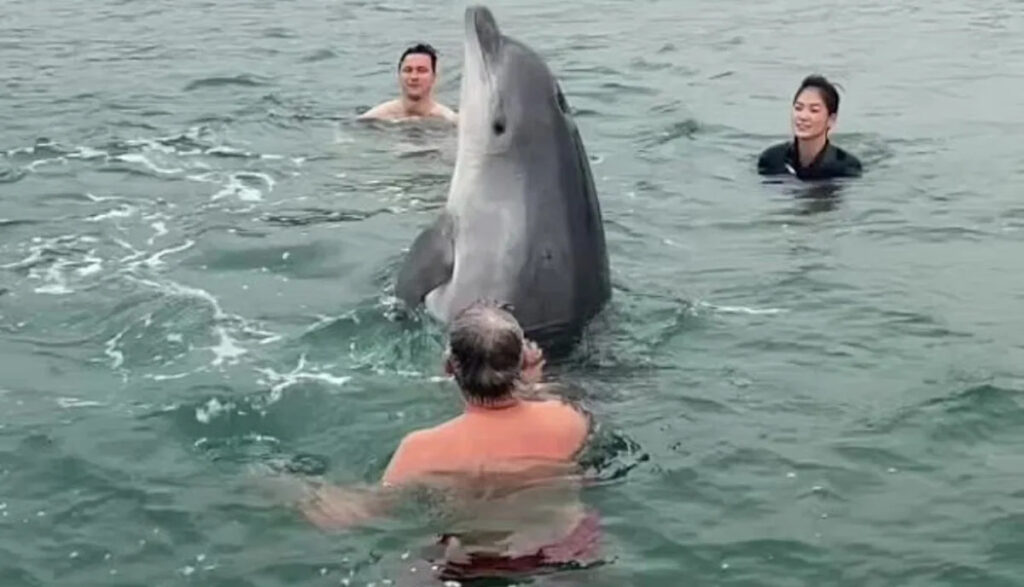Reggie, a dolphin that gained fame for engaging with swimmers on multiple recent occasions off England’s south coast, was “not asking for belly rubs” but also “not trying to drown people,” according to an expert quoted by the Guardian. Instead, the incidents were viewed as troubling animal behavior changes spurred on by human interaction.
What happened?
In August, reports surfaced about increasingly close encounters between the solitary male bottlenose and people boating or swimming in Lyme Bay, off Dorset, the news outlet detailed.
In a widely shared video from early August, the dolphin approached a family on a morning swim, nudging them and surfacing beside them in what appeared to be playful behavior.
Later in the month came reports of a pair of kayaking brothers intervening when the dolphin became “boisterous” and pushed two women underwater while they were swimming.
Liz Sandeman, co-founder of the organization Marine Connection, took issue with explanations that Reggie was merely seeking “belly rubs” but also denied that the young, roughly half-ton mammal was out to do harm. Sandeman told the Guardian that the hype around the incidents was “the worst scenario I’ve seen for at least 25 years.”
“Over the coming months he will become larger. He will become powerful,” Sandeman said. “He doesn’t really know the harm he could be doing to us in the water. … The situation is becoming dangerous, for the swimmers and the dolphin.”
Why are animal behavior changes concerning?
When animals become accustomed to people and start changing their behaviors, it can impact human safety as well as wildlife’s well-being.
In Dorset, the UK government’s Marine Management Organization registered concern in May about “people intentionally approaching the animal too closely.”
Reggie, as the dolphin was nicknamed locally in the town of Lyme Regis, was first reported in the area in February, according to Dive Magazine. He was marked by injuries attributed to propeller strikes from boats — another hazard for dolphins habituated to human activities.
“Human interaction can cause dolphins to lose their natural wariness, leading to injury or even death,” the MMO wrote in a Facebook post. “Disturbed dolphins are also known to become aggressive toward people.”
Swimming and boating aren’t the only ways human activities are impacting animal behavior. Elsewhere, marine animals have turned up in unexpected places, possibly due to changes in their ocean environments. And scientists have studied whether orcas are changing their feeding patterns due to world temperature increases that are driven by people.
What’s being done about animal behavior changes?
In the UK, the MMO has stepped up its public warnings to avoid human interactions that drive changes in dolphin behavior.
It has reminded citizens of its Marine and Coastal Wildlife Code, which says how to act toward various species and details legal protection. This code parallels guidelines and laws in the U.S.
“Please remember,” said the MMO’s recent Facebook post. “Never swim with, touch, feed, or approach dolphins. If a dolphin approaches you, calmly leave the area.”
Join our free newsletter for good news and useful tips, and don’t miss this cool list of easy ways to help yourself while helping the planet.

